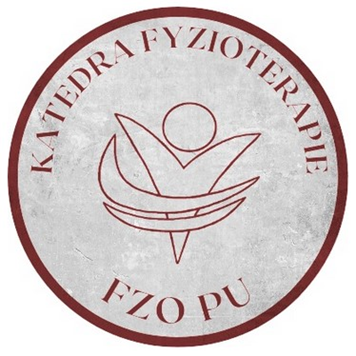Mgr. Physiotherapist`s graduate profile

Profile of a physiotherapy graduate
Physiotherapy is a study program from the system of study programs administered by the Ministry of Education of the Slovak Republic as a field of knowledge (par. 50, paragraph 1 of Act No. 131/2002) in which a graduate of the study program (par. 51, paragraph 1 of Act No. 131/2002) acquires professional competence/competence to perform his original profession, or prepares to continue further university studies.
Profile of a Physiotherapy graduate
A graduate of the physiotherapy study program is a qualified university health worker with a broad professional profile. He masters examination and treatment procedures and methods in physiatry, balneology and medical rehabilitation. He is ready to independently perform activities requiring professional erudition, independence in work, in decision-making, personal responsibility in medical rehabilitation, primary, secondary and subsequent health care, preventive, diagnostic, therapeutic, counseling and educational activities. It indicates, plans and performs highly specialized techniques, methodologies, physiotherapy procedures and performances, demanding physiatry and balneological methods, hydrotherapy, ergotherapy, electrotherapy, kinesiology. He can carry out teaching activities at the relevant levels of education in the field. It has prerequisites for independent scientific-research activity and methodological-organizational work in the field. He creatively participates in the development of the department. He knows how to work creatively in a team and has appropriate management skills. The graduate will be employed in hospital and polyclinic facilities, spa treatment facilities, professional treatment and rehabilitation institutes and other facilities that provide preventive and curative health care, or health protection and support. A characteristic feature of a graduate is a deep, moral-ethical and humane approach to people, especially the sick, physically, mentally disabled and handicapped, based on understanding, empathy, love for people and trying to help, being able to accept them in the most demanding life situations and accept their the right to individualized care, participation in it, including decision-making, to ensure privacy, to be able to understand the patient and help him solve his health problems, to show him respect, empathy, comfort and emotional support, to take into account his personality, his way of perceiving health, illness, handicap, his experience and behavior under the influence of changes in health status, to win him over and motivate him for cooperation. The graduate has prerequisites for further specialized and continuous education.
For the qualified performance of the mentioned activities, the graduate must have a broad professional profile with the necessary previous general education, be sufficiently adaptable also in related fields, think logically, be able to apply the acquired knowledge and skills in solving problems, be able to work independently and in a team, continuously learn, permanently to be interested in the development of one's field by studying professional literature, to master important manual skills, to act purposefully, judiciously and decisively in accordance with legal and ethical standards.
Theoretical knowledge (2nd level)
Graduate of the physiotherapy study program:
• knows the morphology and physiology of the individual systems of the human body with an emphasis on the movement and support apparatus and the understanding of the human organism as a dynamic and adaptable whole
• has basic pathomorphological and pathophysiological manifestations of disease processes and conditions in the human organism
• has basic knowledge of epidemiology, hygiene, prevention and health statistics
• understands, through the acquired knowledge, the unity of the organism and the environment in health and disease, the importance of preventive measures in terms of health protection and support
• has basic knowledge of general and special pharmacology, the effect of drugs and the factors that influence it and their mutual interaction
• master basic nursing techniques with subsequent ability to use acquired knowledge in physiotherapy
• master the theoretical principles of first aid principles in general for accidents, life-threatening situations, mass events
• has basic knowledge of facts, concepts, relationships, contexts and principles of pedagogy, special pedagogy, psychology and sociology
• master the theoretical foundations and methods of effective communication in professional activities • master the basic principles of medical ethics
• has theoretical foundations in general kinesiology propaedeutics, special kinesiology and pathokinesiology
• controls a wide system of knowledge, data and methods from functional diagnostics, especially of the locomotor system, which are a prerequisite for prevention, correct diagnosis, effective therapy and evaluation in the process of medical rehabilitation
• controls a wide system of knowledge in kinesiotherapy in general and according to the specific condition, nature of the disease, disability and in individual clinical departments and in individual age periods
• controls a wide system of knowledge about the physical nature of physiatry, balneological and electrotherapeutic procedures, their physiological effects and events taking place in the body with a focus on prevention, diagnosis, and therapy
• controls a wide system of theoretical knowledge from reconditioning-relaxation exercises, their use and physiological effects, with the subsequent ability to use them in kinesiotherapy
• master the theoretical knowledge, instructions, and procedures of ergotherapy in medical rehabilitation
• has basic knowledge of medical informatics focused mainly on the professional activity of a physiotherapist
• knows the Latin language at a level that will enable him to orientate himself and learn professional terminology
• knows a foreign language at a level that will enable him to navigate in foreign professional literature and professional communication
Practical abilities and skills (2nd level)
Graduate of the physiotherapy study program:
• comprehensively controls the description, analysis, evaluation of kinesiological conclusions and is able to use them in kinesiotherapy
• controls a wide system of individual methods and techniques of functional diagnosis of the locomotion system as well as internal systems with the subsequent ability to evaluate them and draw conclusions for the creation of kinesiological and rehabilitation programs
• controls a wide system of methods, techniques and procedures used in kinesiotherapy in individual clinical departments according to the state and nature of threat, disease, disability and handicap in individual age periods
• controls independent critical and rational thought processes when compiling kinesiological and rehabilitation programs and their subsequent implementation
• controls the methods of rational selection of the appropriate therapeutic method according to the kinesiological analysis of the patient's functions
• can assess the significance of his procedure in therapy, evaluation, correction and updating of the kinesiological and rehabilitation program
• controls the indications, contraindications, and applications of physical, balneological and electrotherapeutic procedures
• controls the indications, contraindications and applications of individual types and techniques of massages
• controls the movement activities of reconditioning-relaxation exercises, their demonstration and application in the medical rehabilitation process
• controls the functional diagnosis, construction and implementation of the rehabilitation program from the point of view of occupational therapy
• master skills from various areas of work activities and methodical instructions for specific procedures in occupational therapy
• controls the application of methods, forms and means of education and training in health education, positively influencing the health awareness of clients and social groups, methods of obtaining them for active participation in the protection and strengthening of one's own health
• masters professional effective communication and behavior, is capable of empathy and assertive behavior in relation to clients
• master basic nursing techniques, general safety measures that apply to patient care, their use in physiotherapy
• handles qualified first aid in the event of accidents, life-threatening conditions and mass events,
• has consistent preventive thinking and action in health issues
• master the basics of working with information technologies in professional activities.
Additional knowledge, abilities and skills (2nd degree)
Graduate of the physiotherapy study program:
• is able to actively participate in the creation and protection of a healthy living and working environment
• has basic knowledge about drugs, groups of drugs and their effects on individual systems of the human body
• master the latest knowledge about nutrition in general and specifically in the prevention and therapy of diseases of individual systems
• has basic knowledge about strategy, system, financial security, health insurance and legal aspects of health care
• understands the basic attributes of health, its preservation, consolidation and renewal and the factors that influence them
• master the basics of the methodology of professional scientific research,
• master the basics of professional economics and management,
• master the basics of professional law and legislation,
• controls the organization of his work, work and cooperation in the medical team, communication, and transfer of professional information in the team.
Delineation of areas of application of the graduate
A graduate of the study program obtains the qualification to exercise the profession of physiotherapist master. Develops physiotherapy practice in all areas and facilities of the health care system for the health of the population, is able to think critically and work with the results of credible research, participates in scientific research activities and uses scientifically justified work methods, procedures, techniques that can be implemented by qualified experts in physiotherapy, identifies physiotherapy problems that can be the subject of nursing research, uses and applies the results of research in physiotherapy in accordance with ethical principles, patients' rights with an emphasis on maximum quality and performance. Furthermore, it can be applied in professional management, in research and in the education and training of physiotherapists at the appropriate level.
A graduate of the master's degree in the study program of physiotherapy after a defined professional experience can specialize in the specialized fields specified in Regulation of the Government of the Slovak Republic No. 743 of 2004 on further education of healthcare workers.
He will receive a complete second-level university education in the study program of physiotherapy with an orientation to the provision of health care in physiotherapy.
